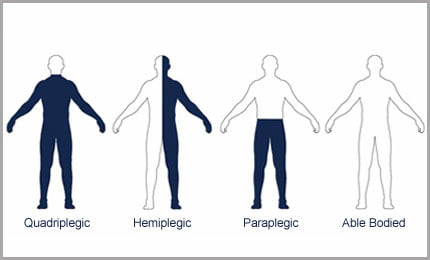
Physiotherapy can be an important part of rehabilitation for individuals with paralysis. The goal of physiotherapy for paralysis is to help the individual regain as much independence as possible and improve their quality of life. A physiotherapist will work with the individual to develop an individualized treatment plan that may include:
Range of motion exercises: These exercises help maintain and improve joint mobility and flexibility.
Strengthening exercises: Exercises that focus on building strength in the muscles that are still functional can help improve overall physical function.
Balance and coordination exercises: These exercises can help improve balance and reduce the risk of falls.
Functional training: This involves practicing activities of daily living, such as transferring from a wheelchair to a bed, in order to improve independence.
Assistive devices: A physiotherapist can help determine which assistive devices, such as braces, walkers, or wheelchairs, may be helpful for the individual.
Electrical stimulation: This technique uses electrical impulses to stimulate muscles and improve strength.
Gait training: This involves practicing walking and may include the use of orthotics or assistive devices.
It is important to consult with a healthcare provider to determine the underlying cause of paralysis and develop an appropriate treatment plan, which may include physiotherapy in combination with other treatments.


